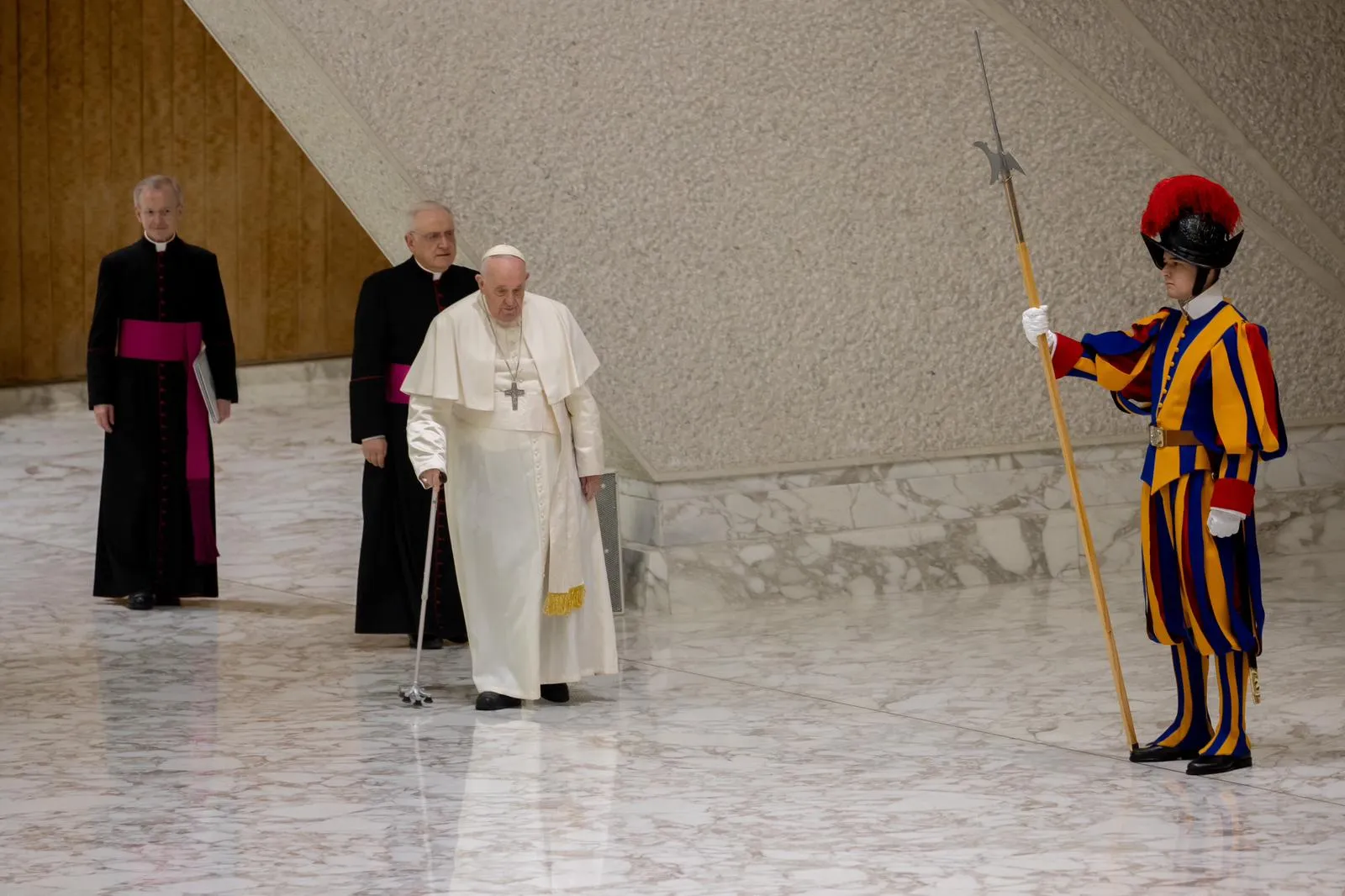
It has been a good stretch in the Ramage garden lately—or at least a busy one. Between harvesting greens, picking the season’s first strawberries, watering young tomato plants, and doing battle with proliferating weeds, my family and I have been spending a lot of time outdoors with our hands in the dirt. This season has so far been laborious but rewarding, and it has renewed my conviction that gardening is far more than just a hobby or a frugal strategy to cut the grocery bill. It is those things, to be sure.
But, more importantly, it is a spiritual discipline, a school of virtue. In a world often disconnected from the rhythms of creation, gardening offers a living catechesis written in soil, sweat, and sacrifice. Today, with most educational establishments on break for the summer, I want to reflect on how direct contact with the good earth—the “first book” written by God—teaches us lessons that cannot be learned in school.
True stewardship and creation’s inner ordering
To appreciate gardening as a form of catechesis, we must begin with a foundational Christian conviction, one not widely shared in today’s culture: the world we inhabit is not mere nature, but a divine gift that we refer to as creation. May 24th marked the tenth anniversary of Pope Francis’s landmark creation encyclical Laudato Si’, making it a fitting time to recall a key insight from Argentine pontiff: his distinction between nature—in which people tend to view the world as a system to be studied and mastered—and creation, whereby Christians understand the world as a gift to be received in love.
Yet, as with much of his broader environmental vision, this insight was not original to Francis, for a hallmark of Benedict XVI’s legacy is his emphasis that genuine care for creation begins by receiving it as “a gift of the Creator who has given it an inbuilt order.”
As our popes see it, authentic ecology begins when we recognize that the world and its laws are ontologically prior to us. So often today, we treat nature (including human nature) as mere matter to be manipulated at will, neglecting the deep consequences such a posture entails. But to follow the Church in recognizing creation as a divine gift is to acknowledge that it is not something we can make for ourselves but rather something that we receive.
Our task is to retrieve this wisdom and, in its light, discover how to inhabit the world in keeping with what Benedict called “the rhythm and the logic of creation.” Caring for the world rightly means entering into the school of creation as humble apprentices—learning to calibrate the rhythm of our lives to the inner order of the cosmos.
Agrarian practices and the logic of creation
What, then, does it look like to become attuned to the inner logic of creation in our lives?
For some dwellers of this planet, the answer is woven into their very way of life: These are the people blessed with the demanding yet rewarding undertaking of living off the land for their livelihood. Carrying out their work, they embody a way of life that has sustained humanity from time immemorial. In this connection, the disciplines of shepherding, hunting, and gathering hold a certain pride of place, as these were how mankind ensured its survival from the dawn of our species hundreds of thousands of years ago until the comparatively recent rise of agriculture over the past ten thousand years.
While acknowledging the benefits of these ancient ways of life, our popes have focused more intently on the virtues associated with the comparatively new practice of agrarianism, and so this is where I will focus my attention in the limited space I have here.
The Church has long looked to agriculturalists as models of virtue and, in more recent times, as exemplars who might inspire a broader ecological conversion in society. Just as St. James urged the faithful of his time to model their eager expectation of the Lord’s coming after the farmer who patiently awaits his harvest (Jas 5:7-8), so too does the Church today invite us to approach creation with a spirit that balances industrious work and humble receptivity. Describing the farmer as a “model of a mentality which unites faith and reason in a balanced way,” Pope Benedict emphasized that working the land requires juggling several things all at once: understanding the inner dynamics of nature essential to success, carrying out one’s work with the utmost diligence, and all the while entrusting the outcome to divine providence—recognizing that “certain fundamental things are not in his hands but in the hands of God.”
Benedict suggested that the combination of patience and perseverance in the farmer represents “a synthesis between human commitment and confidence in God.” In short, the farmer’s way of life is presented to us as a model for how we might better learn to rely on divine providence and live in the present, trusting that tomorrow will take care of itself and today’s troubles are enough for today (Mt 6:25-34).
Rejoicing when things go according to plan
All this may be true, one might concede, but most of us today are not shepherds or farmers. How, then, are the rest of us supposed to align our lives with the logic of creation?
Thankfully, the virtues associated with agriculture are by no means the exclusive domain of those whose entire livelihood depends directly on working the land. To repeat something I have already mentioned, it is accessible through all forms of direct engagement with creation—be it hunting, fishing, or tending even a modest flock of backyard chickens. Indeed, anyone—even an urban apartment dweller—can find ways to share in the goods of those ancient ways of life.
In this connection, gardening in particular stands out as a privileged way for nearly anyone in the modern world to enter into the rhythms of creation. Whether tending a single potted herb or cultivating a sprawling rural garden and orchard, horticulture invites us into a discipline of self-giving in service to creatures entrusted to our care.
One notable lesson gardening imparts comes from how it attunes us to the predictable rhythm of life, death, and resurrection through which we are taught a quiet lesson in divine generosity, a living metaphor for the abundance of God’s grace. This rhythm is not merely theoretical but plays out tangibly in our own lives as gardeners. For instance, we witness this unfold each year at our Kansas homestead. As winter draws to a close, the anticipation begins when rhubarb and leafy greens emerge in April. Then come the strawberries in May—this is where we are now as I write this—followed by raspberries in June, blackberries in July, and apples and pears in August. When September and October arrive, melons and pumpkins take center stage if they do not get destroyed by pests, and, if providence permits, we may even enjoy figs before the first hard freeze and snow.
This consistent cycle affords our family the joy of relishing a taste of the Lord’s abundance through a cornucopia of fresh salads, salsa, chutneys, pies, sorbets, and more throughout the year. And, of course, this is just a humble example derived from my limited personal experience. The harvest naturally varies from person to person and family to family, depending on our locale, what we like to grow, and how kindly mother nature treats us in a given year.
Submitting to the rhythm of creation
Yet, it is not all roses, as they say. Those who have regular, meaningful contact with creation learn a pivotal but challenging lesson: plants and animals follow their own schedule. Those entrusted with the care of other creatures are blessed to be freed of the illusion that we humans are autonomous rulers of creation. While humans like to think that we run things, tilling the Lord’s garden reminds us that it is we who must often bow to creatures’ demands and conform to their needs, regardless of whether it is convenient for us.
It is in this vein that Pope Benedict spoke of a relationship of reciprocity between man and creation, “in which we serve nature and nature serves us.”
The reality of this is made plain in the simple fact that a cow will not patiently wait several days to be milked, chickens are not going to postpone their egg laying to a time convenient for us, and crops are not going to hurry up and mature so that we can go on vacation. Rather, a serious commitment to care for God’s creatures often requires that we arrange our schedules around their needs, not the other way around. Having ignored this truth more than once, I can attest that being away when your fruit reaches peak ripeness is a sure way to invite weeds and pests, resulting in the waste of an entire year’s labor.
I can likewise confirm that it is tempting to neglect care of one’s outdoor animals when the wind chill hits 20 degrees below zero or the heat index soars to 110, yet it is not difficult to predict what the outcome will be if fail to submit to the rhythms and demands of nature for a single day in the heart of winter or heat of summer. In this way, we begin to understand the wisdom Scripture offers. After passing by the neglected field of a sluggard and seeing it overgrown with thorns, Solomon reflects that he received this “instruction” from the scene:
A little sleep, a little slumber,
a little folding of the hands to rest,
and poverty will come upon you like a robber,
and want like an armed man (Prov 24:30–34).
Solomon shows us that creation is a teacher for those who observe it carefully, and this allowed him to understand that even a single misstep amid a long journey of careful labor in the garden can end in total failure. In this way, tending the soil trains the soul in the vigilance that is also demanded in the spiritual life, where even a moment’s lapse in watchfulness can result in dire consequences.
Learning lessons when things go sideways
This leads us to another sobering lesson that impresses itself upon us when we garden, which is the fact that we are entirely dependent upon the mercy of God for all that we do. As the Ramage household savors last year’s fruit from the deep freezer at the same time that the next harvest begins to ripen, we must beware of growing complacent about the preciousness of this gift and the immensely complex and delicate processes that must align to make it possible. Yes, one year we may have such an abundance of tomatoes that eating them all becomes a tedious chore. But other years, we enjoy a particular crop only briefly and in very limited supply, or even not at all.
This past year, for example, we were only able to harvest a handful of peaches and plums thanks to a late spring freeze. In this, we encounter a living lesson about grace: that we are finite creatures wholly dependent on God, who owes us nothing and often allows us to experience want, even as he so often provides in abundance.
It is striking how often things go wrong in our gardens—times when we have done everything right, only to see everything end up falling apart. For example, I can raise poultry for months only to find chickens dead at the mouth of a predator. I can nurse a tomato plant all season long only to see it suddenly die of an unforeseen infection, and I can expectantly watch a fruit tree grow for years only to see its life cut short by a severe storm. Anyone involved in horticulture can testify to the wisdom of Norman Wirzba’s words when he calls this dynamic “a form of catechesis that helps us come to terms with our own need and impotence.”
Gardening brings us face to face with our own ignorance, our inability to plumb the full depths of the complex natural dynamics that undergird a fruitful harvest. It also reveals our impatience, as when the urge to hasten God’s plan backfires, and we end up killing a plant with too much fertilizer (I might have committed that crime a few times). Oftentimes, gardening reveals a complete inability to do anything whatsoever to avert disaster in the form of a flood, drought, storm, or infestation that might decimate days or weeks, if not months or years, of our diligence and hard work.
Significantly, this lesson finds a clear parallel in the spiritual life: we may do all that is humanly possible—live virtuously, frequent the sacraments, and remain faithful in prayer—yet still find ourselves in desolation, feeling as though we have failed. Given the unity of body and soul and the inseparable connection between our interior life of prayer and our embodied life in the world, it is therefore no wonder that gardeners, like those who endure chronic suffering, are often especially well disposed to embrace the challenges of faith. They have already been forced to shed the hubristic illusion that we are in full control of nature or free to impose our will upon it. It is hard to think of a better way of putting this than Norman Wirzba has here:
Gardens reveal that we depend on created forces of life over which we have little control…To garden is to unseat oneself as the center of primary importance and to instead turn one’s life into various forms of service that will strengthen and maintain the many memberships that make up the garden. It is to give up the much-trumpeted goal of modern and postmodern life–individual autonomy–and instead live the life of care and responsible interdependence.
This, then, is the overarching lesson we discover when we take seriously God’s command to till and keep the earth through gardening and similar practices.
Conclusion
In this brief reflection, I have pointed to a paradox at the heart of Christian living that is embodied in a particularly meaningful way through gardening: by getting our hands dirty, we cleanse and heal our souls. As I have discussed, anyone directly involved in the cultivation of the land enjoys access to a particular way of seeing the world that the average modern person does not. The gardener—and even more so the true farmer whose very livelihood depends directly upon the land—possesses a unique understanding of creation thanks to his intimate knowledge of all that goes into creating the conditions for an abundant harvest.
But beyond that—and indeed precisely because of it—he is acutely conscious of the non-inevitability of things. This is crucial because, the better we know how quickly and in how many different ways a harvest can go wrong, the less likely we are to take granted ordinary things like a sandwich or a pie—items most of us expect to grab effortlessly from a supermarket without having to give it a second thought.
And if that were the only lesson gardening had to offer, it would be more than enough. Thankfully, however, there is so much more—an abundance of wisdom that I have only begun to touch on here. Through hands-on contact with the good earth that God has given us, gardening teaches us to live more patiently, humbly, and gratefully. If we are willing to pause every so often and truly smell the roses as we till and keep the land, it reveals a path to greater harmony with God, with one another, and with the rest of creation.
If you value the news and views Catholic World Report provides, please consider donating to support our efforts. Your contribution will help us continue to make CWR available to all readers worldwide for free, without a subscription. Thank you for your generosity!
Click here for more information on donating to CWR. Click here to sign up for our newsletter.







I think the Covid lockdowns taught us about the wisdom of assuming we could always depend upon the supply chain. But it’s typically human nature to forget what we learned once conditions change.
As a former (because of disability) gardener, I totally get it! Thanks, Mathew.
We read how we “…take granted ordinary things like a sandwich or a pie—items most of us expect to grab effortlessly from a supermarket without having to give it a second thought.”
About an anti-farm bill introduced a few years back, a proponent was reminded that this is how we get food. To which the Congresswoman retorted that there was not problem since “we can buy food in the local supermarket” (Alexandria Occasional-Cortex).
As an addition to agrarianism there’s aquaculture. When in Africa seminaries, native farmers had man made ponds stocked with fish, usually tilapia. When I found my place for retirement to a contemplative life I was delighted to find it has a pond stocked with crappie.
Besides good eating they’re fun to fish. And of course they’re countless allusions to Christ, the Apostles. Although St Peter’s fish as they’re called are tilapia. Whether agriculture of aquaculture we can make them ways as Ramage suggests to come closer to God.